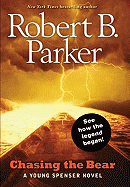
A few months ago I noticed an interesting title Hit List: the best of Latino Mystery among the library's new fiction books. It is a collection of mystery and crime short stories. Publishers Weekly wrote (I couldn't find my library's copy) that the book claims to be a first-ever anthology of mystery short stories by Latino writers. Included are stories by Manuel Ramos, A.E. Roman, Lucha Corpi, Alicia Gaspar de Alba, Rolando Hinojos and Steve Torres. Writer Carolina García-Aguilera is the only one whom I ever remember reading (from her "Lupe Solano" private investigator mystery series).
Anyway, I'm glad to see the book in our library. Hit List was edited by Sarah Cortez and Liz Martínez and it is 191 pages.
Next, as an appropriate follow-up, I discovered the new book Black Noir: mystery, crime, and sus pense stories by African-American writers in the same new fiction location. The book was edited by Otto Penzler. It features work by Walter Mosley, Edard P. Jones, Chester Himes, Charles W. Chesnutt, Elanor Taylor Bland and more. The book was edited by Otto Penzler and he writes in his introduction, "On the pages that follow, you will find stories that transcend race and genre to fulfill their primary purpose to inform and entertain."
pense stories by African-American writers in the same new fiction location. The book was edited by Otto Penzler. It features work by Walter Mosley, Edard P. Jones, Chester Himes, Charles W. Chesnutt, Elanor Taylor Bland and more. The book was edited by Otto Penzler and he writes in his introduction, "On the pages that follow, you will find stories that transcend race and genre to fulfill their primary purpose to inform and entertain."
 pense stories by African-American writers in the same new fiction location. The book was edited by Otto Penzler. It features work by Walter Mosley, Edard P. Jones, Chester Himes, Charles W. Chesnutt, Elanor Taylor Bland and more. The book was edited by Otto Penzler and he writes in his introduction, "On the pages that follow, you will find stories that transcend race and genre to fulfill their primary purpose to inform and entertain."
pense stories by African-American writers in the same new fiction location. The book was edited by Otto Penzler. It features work by Walter Mosley, Edard P. Jones, Chester Himes, Charles W. Chesnutt, Elanor Taylor Bland and more. The book was edited by Otto Penzler and he writes in his introduction, "On the pages that follow, you will find stories that transcend race and genre to fulfill their primary purpose to inform and entertain."Black Noir is 349 pages. And I'll repeat, I'm glad to see this book in the libray (and in print).


